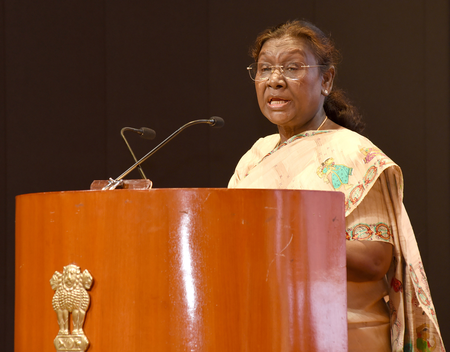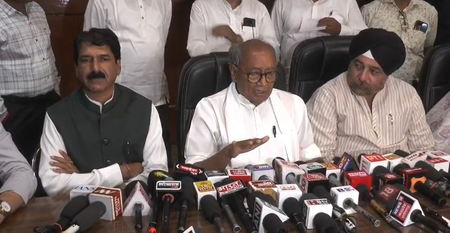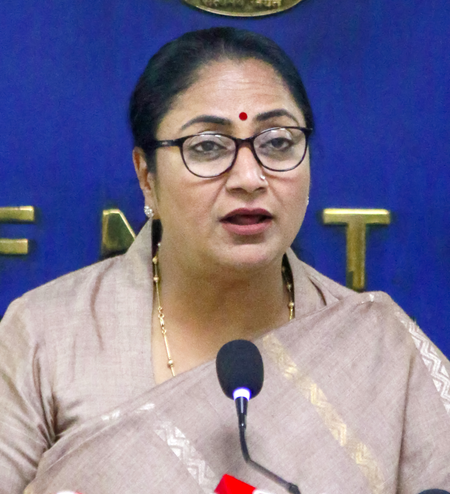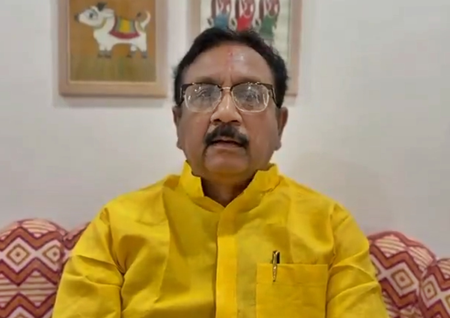Tamil Nadu Bills case: President Murmu seeks SC’s opinion on setting timelines on assent of Bills

New Delhi, May 15 (IANS) In the aftermath of the Supreme Court verdict in the Tamil Nadu Bills case, President Droupadi Murmu, in a reference made under Article 143 of the Constitution, has asked the top court to consider whether timelines can be imposed on Governors to act on Bills in the absence of a constitutionally-prescribed time limit.
The President asked the apex court to report its opinion on constitutional options available to a Governor when a Bill is presented to him under Article 200 of the Constitution of India.
“Is the Governor bound by the aid and advice tendered by the Council of Ministers while exercising all the options available with him when a Bill is presented before him under Article 200 of the Constitution of India?” the President asked the Supreme Court.
Further, it questioned if the exercise of constitutional discretion by the Governor on Bills is justiciable, when Article 361 of the Constitution puts an absolute bar to judicial review in relation to gubernatorial actions.
“In the absence of a constitutionally-prescribed timeline and the manner of exercise of powers by the President, can timelines be imposed and the manner of exercise be prescribed through judicial orders for the exercise of discretion by the President under Article 201 of the Constitution of India?” President Murmu asked the top court to consider and report its opinion thereon.
Earlier in April, a two-judge Bench of the Supreme Court, using its inherent powers under Article 142 of the Constitution, resolved a standoff between the Tamil Nadu government and Governor R.N. Ravi over the delay in granting assent to Bills passed by the Assembly.
It ruled that Governor Ravi’s refusal to approve 10 Bills in Tamil Nadu was both “illegal and arbitrary” and set a three-month deadline for Presidential and gubernatorial approval of Bills passed by the legislature for a second time.
“The President is required to take a decision on the Bills reserved for his consideration by the Governor within a period of three months from the date on which such reference is received,” said a Bench of Justices J.B. Pardiwala and R. Mahadevan.
If there is no decision within this time frame, states are entitled to file writ petitions seeking a writ of mandamus against the President, the Justice Pardiwala-led Bench clarified.
The apex court used the powers for the purpose of declaring the 10 withheld Bills as deemed to have been assented to on the date when they were presented to the Governor after being reconsidered by the state legislature.
The top court held that once a Bill is returned, re-passed by the legislature, and presented again to the Governor, it is not open for the Governor to reserve it for the President’s consideration.
Additionally, the President is now under an obligation to provide reasons for their decision, which must be communicated to the state government.
Further, it suggested that the President should consult the Supreme Court on Bills involving Constitutional issues.
The judgment, apparently, brought Presidential actions under judicial review by favouring a three-month deadline for granting assent to Bills.
The issue took a new twist after Vice President Jagdeep Dhankhar used strong words against the judiciary, comparing Article 142 to a ‘nuclear missile’ available to the judiciary against democratic forces.
–IANS
pds/rad





